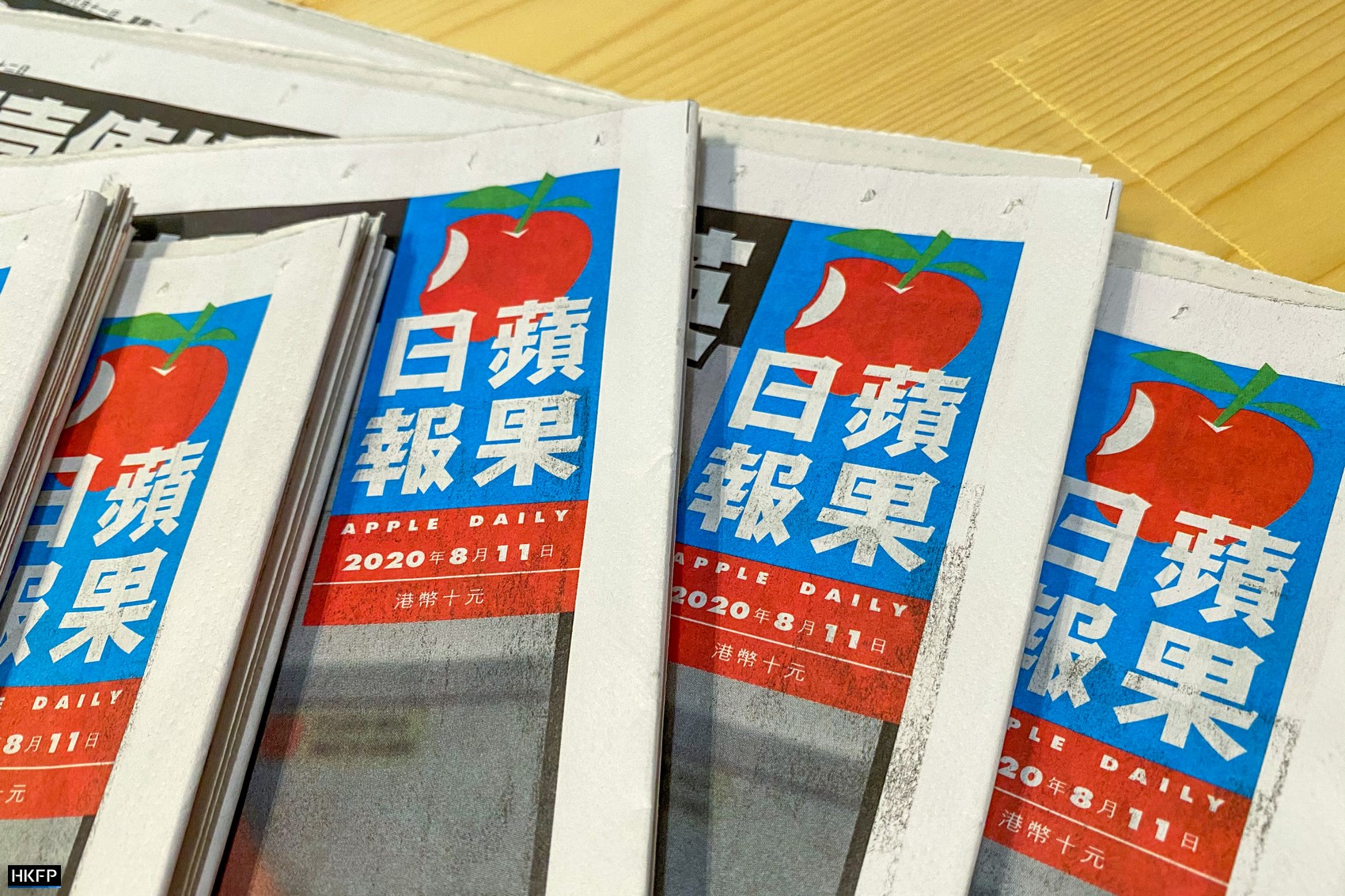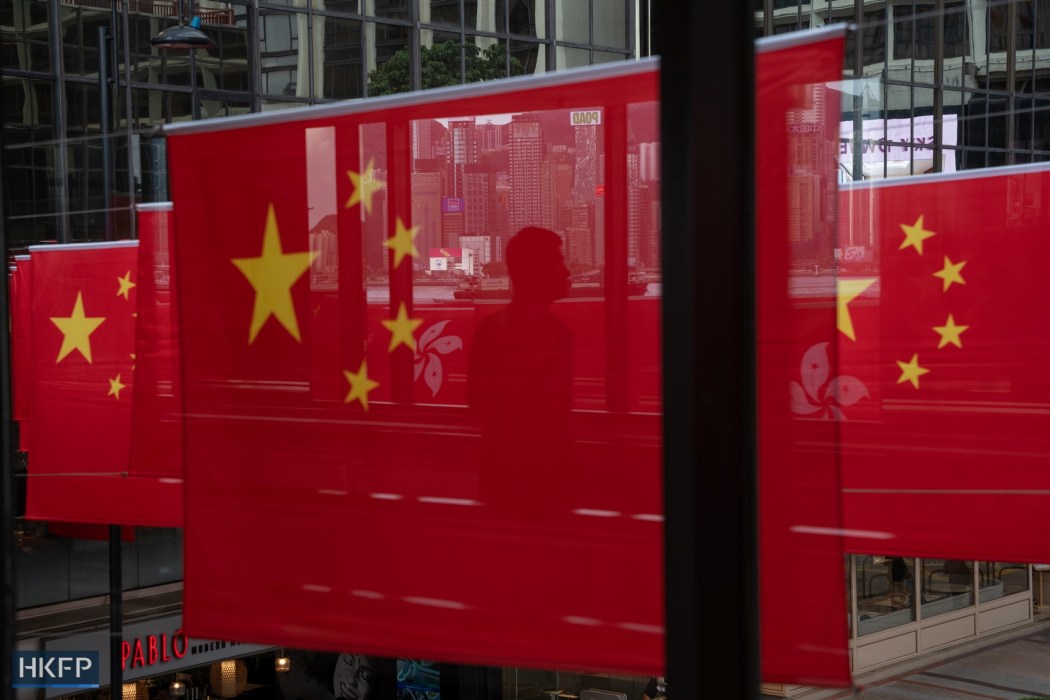The views expressed by Hong Kong media tycoon Jimmy Lai in his Apple Daily column were “guidelines” for writing and choosing commentary articles to publish in the now-defunct newspaper, a former editorial writer has said in a landmark national security trial.

Yeung Ching-kee told the court on Tuesday that it was known at the newspaper that no one dared to make changes to opinion pieces penned by its founder Lai, as the ex-editorial writer testified against his former boss for the second straight day.
Lai is facing a 80-day trial and life imprisonment after he denied two counts of conspiring to collude with foreign forces under the Beijing-imposed security law. He also pleaded not guilty to one count of conspiring to publish “seditious” materials under the colonial-era sedition law.
Yeung, who was also charged in the case, testified for the prosecution that Lai’s column “genuinely” reflected the mogul’s views and stance. Some of Lai’s articles discussed the issue of foreign sanctions against China, in which the mogul said he believed the sanctions “would not be eased.”
The US’ policy towards China would not be reversed in a short period of time, and sanctions from the US would have far-reaching impacts on China, Yeung said, citing his understanding of Lai’s commentary articles.
“I believed Lai’s views were the guidelines for me to write and choose articles,” the ex-writer, who managed a commentary section in Apple Daily, told the court in Cantonese.
Yeung also pointed to Lai’s articles in 2019 during the anti-extradition bill unrest. His column was printed on Sundays, when most large-scale demonstrations would take place. The media mogul would directly encourage people to protest, the editorial writer said.

“When I was writing and choosing articles at that time, I was also adopting the theme of encouraging people to take to the streets,” Yeung testified.
‘Twitter work’
The prosecution on Tuesday unveiled conversation records between Lai and Yeung in May 2020, which showed that the media tycoon had offered to pay the editorial writer HK$10,000 for “Twitter work.”
According to Yeung, Lai had said that opening an account on Twitter, now known as X, was for the purpose of boosting his influence and the impact of Apple Daily in a bid to sway public opinion.
He was willing to “share the responsibility of [influencing] public opinion,” Yeung said in a message to Lai.
The Apple Daily founder had planned on compensating him HK$10,000 every month on top of his salary, Yeung said. But he told the court that he “did not receive one cent” for helping Lai with his Twitter account.
‘Red line’
Yeung testified on Monday that Apple Daily struggled to find enough commentary writers following the enactment of the national security law in June 2020. Lai also wanted to change up the opinion writers from time to time, he said.

The ex-editorial chief told the court on Tuesday that some writers thought writing for the Apple Daily was risky, citing an ambiguous “red line” under the Beijing-enacted legislation.
“For the writers, they were all worried where the red line of the national security law would be drawn… [Lai] said we should find more writers in Beijing who wrote about insider news, but the writers thought the risk was high and did not dare to write,” he said.
Yeung went on to say that Cheung Kim-hung – an ex-publisher of the paper who was also charged and testified against Lai – had told him that Apple Daily would not pay for articles written by wanted individuals, fearing it would be seen as supporting them. The newspaper eventually did not receive any copy from wanted individuals, he said.
The prosecution repeatedly asked Yeung to identify commentary writers who had contributed to Apple Daily and asked him to describe the angle of their articles. While Yeung confirmed the names of a few writers, he declined to disclose some, saying such information was not relevant to the current case.
‘Under pressure’
The prosecution on Tuesday showed a document found on Yeung’s computer describing changes made to the newspaper’s language due to being “under pressure.” The document, drafted in April 2021, was prepared by Yeung after the publication came under fire by then-police chief Chris Tang and Beijing-backed newspapers Wen Wei Po and Ta Kung Pao.

According to the document, Cheung and then-editor-in-chief Ryan Law had ordered amendments to certain wording in Apple Daily’s articles. Cheung had advised an editorial writer to avoid the term “black cops” in the copy, while Law said the publication would stop using the term “Wuhan pneumonia” and would replace it with “Covid-19” instead, the document read.
Yeung will continue his testimony on Wednesday.
Lai’s trial began on December 18 last year, at which time he had already spent more than 1,000 days in custody. Three judges – handpicked by Hong Kong’s chief executive to hear national security cases – are presiding over Lai’s trial in the place of a jury, a departure from the city’s common law traditions.
Beijing inserted national security legislation directly into Hong Kong’s mini-constitution in June 2020 following a year of pro-democracy protests and unrest. It criminalised subversion, secession, collusion with foreign forces and terrorist acts – broadly defined to include disruption to transport and other infrastructure. The move gave police sweeping new powers and led to hundreds of arrests amid new legal precedents, while dozens of civil society groups disappeared. The authorities say it restored stability and peace to the city, rejecting criticism from trade partners, the UN and NGOs.
Support HKFP | Policies & Ethics | Error/typo? | Contact Us | Newsletter | Transparency & Annual Report | Apps
Help safeguard press freedom & keep HKFP free for all readers by supporting our team























